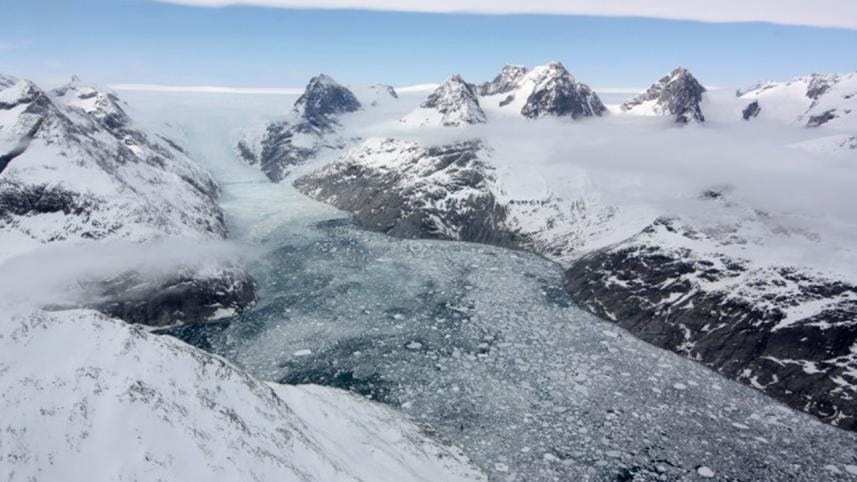Scientists reveal a bit of good news about Greenland’s great melt

Climate change is speeding up the melting of the great sheet of ice covering Greenland, a frozen mass the size of Alaska that holds an estimated 10 percent of the world's ice and scientists are sure of it, reports news and lifestyle magazine TakePart.
If the entire ice sheet melted, it would raise the level of the sea by more than 20 feet worldwide.
But within that certainty, there are still many open and important questions. How much faster is the ice sheet melting? Is that melt affecting the ice sheet in other ways? What does it mean for the pace of rising sea levels?
On all these fronts, a glimmer of good news emerged this week. In a study published Thursday in the journal Nature, a team of scientists from France and the United Kingdom reported that despite decades of rising temperatures and dramatic increases in surface melting on Greenland, the speed with which the southwest section of ice sheet is flowing from Greenland's center toward its edge has decreased since 2007.
The movement of this area of Greenland's ice sheet slowed down by about 12 percent, or nearly 33 feet, a year between 2007 and 2014, according to the study.
Investigating this seemingly counterintuitive phenomenon, the researchers found that during the summers, increasing amounts of surface-melt water flowed to the base of the ice. This cut down the friction in the zone where the ice meets land and allowed its flow to speed up.
But by the end of summer, they discovered, channels carved in the base of the ice by the melt water drained the water so well that the lubrication decreased. By winter, the flow of the ice slowed down. Over time, the rate of the slowdown topped the rate of the summer speedup.
"Our findings suggest that these sectors of the ice sheet are more resilient to the dynamic impacts of enhanced melt water production than previously thought," the researchers wrote.
But their optimism is decidedly guarded, because this area of the ice sheet terminates on land. Ice sheet areas that flow into the ocean, which are affected by warming air temperatures and warming ocean surface waters, don't appear to be slowing down.
"The ongoing acceleration of both glacier surface melt volumes and the ice motion of ocean-terminating glaciers ensures that Greenland's contribution to sea level rise will likely increase in our warming world," study coauthor Peter Nienow of the University of Edinburgh said in a statement.



 For all latest news, follow The Daily Star's Google News channel.
For all latest news, follow The Daily Star's Google News channel.
Comments